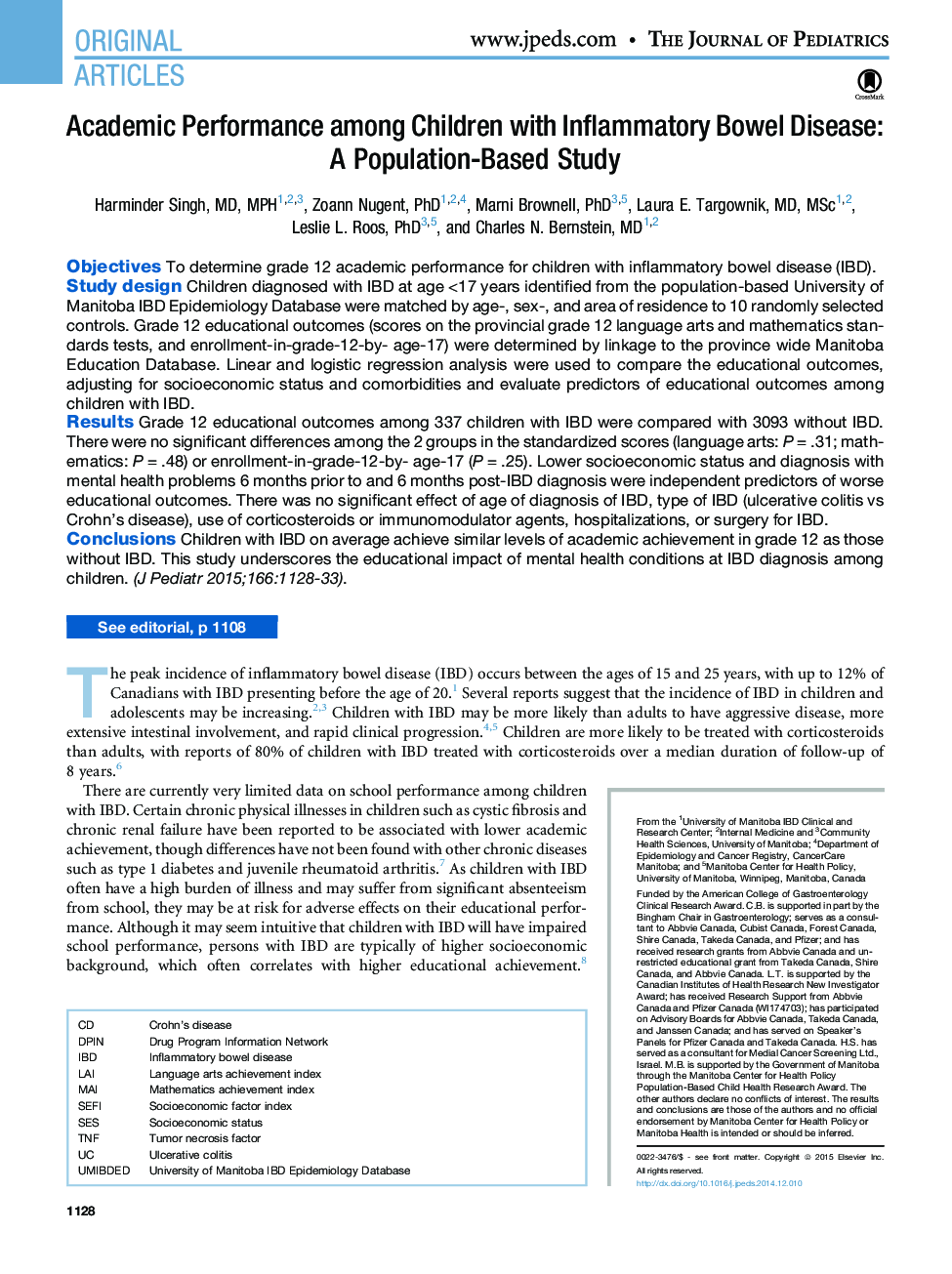| Article ID | Journal | Published Year | Pages | File Type |
|---|---|---|---|---|
| 6221099 | The Journal of Pediatrics | 2015 | 6 Pages |
ObjectivesTo determine grade 12 academic performance for children with inflammatory bowel disease (IBD).Study designChildren diagnosed with IBD at age <17Â years identified from the population-based University of Manitoba IBD Epidemiology Database were matched by age-, sex-, and area of residence to 10 randomly selected controls. Grade 12 educational outcomes (scores on the provincial grade 12 language arts and mathematics standards tests, and enrollment-in-grade-12-by- age-17) were determined by linkage to the province wide Manitoba Education Database. Linear and logistic regression analysis were used to compare the educational outcomes, adjusting for socioeconomic status and comorbidities and evaluate predictors of educational outcomes among children with IBD.ResultsGrade 12 educational outcomes among 337 children with IBD were compared with 3093 without IBD. There were no significant differences among the 2 groups in the standardized scores (language arts: PÂ =Â .31; mathematics: PÂ =Â .48) or enrollment-in-grade-12-by- age-17 (PÂ =Â .25). Lower socioeconomic status and diagnosis with mental health problems 6Â months prior to and 6Â months post-IBD diagnosis were independent predictors of worse educational outcomes. There was no significant effect of age of diagnosis of IBD, type of IBD (ulcerative colitis vs Crohn's disease), use of corticosteroids or immunomodulator agents, hospitalizations, or surgery for IBD.ConclusionsChildren with IBD on average achieve similar levels of academic achievement in grade 12 as those without IBD. This study underscores the educational impact of mental health conditions at IBD diagnosis among children.
